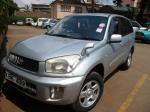Talking Swahili
Just a little effort of speaking a few words of Swahili will get you a big return and big smiles!
Today it is the native language of inhabitants in the East African region and is spoken by approximately fifty million people. Together with English, they are the official languages of both Kenya and Tanzania, and it is also spoken in Burundi, Rwanda, Uganda, and Zaire.
Around the eighth century, Arabs trading on the East African Coast referred to the varieties of Swahili spoken in the area as "languages of the coast" and the name is from the Arabic word sawaahil, meaning coast. It was further adapted to the language by the addition of the prefix ki, resulting in the name Kiswahili.
It is a complex language spoken in East Africa and has ancient roots in the Bantu language family. It is thought to have originated in the early part of the first millennium A.D., and extends now across Central Africa.
The grammar is based on a complicated Bantu structure that learners often find difficult to master. Many words have entered from Arabic, the result of centuries of interaction between peoples along the coast. (I.E. Intermarriages between the Omani Arabs and the Mijikenda communities, which consisted of 9 Bantu tribes who settled along the Kenyan coast line.)
As with many other languages, loan words have entered the language from many places, particularly to name objects or concepts without pre-existing Swahili equivalents. Derivations of non-Bantu words can be traced to languages including English, German, Portuguese, Persian, Gujurati, Hindi, Hebrew, and even Chinese. Some words have entered other languages, most famously safari.
The term "Waswahili" people, sometimes refers to all Swahili speakers, and sometimes refers more specifically to some of the millions of people who live along the Coast.
Have fun!

Here are the ‘Big 5’:
Buffalo - mbogo
Elephant - ndovu/tembo
Leopard - chui
Lion - simba
Rhino - kifaru
Animals - mnyama (wanyama, pl.)
And some of the most known Kenya Animals:
Antelope - pofu/kulungu/pala hala
Baboon - nyani
Bird - ndege
Bushbuck - pongo/paa
Cheetah - duma
Crocodile - mamba
Dik-dik - dikidiki
Eland - pofu
Flamingo - heroe
Gazelle - swala/swara/paa/impala
Gerenuk - swala tiga
Giraffe - twiga
Grant’s gazelle - swala granti
Hippopotamus - kiboko
Hyena - fisi
Monkey - tumbili
Oryx - chorea
Ostrich - mbuni
Snake - nyoka
Topi - nyemera/paa
Vervet monkey - tumbili
Vulture - tai/gushu
Warthog - ngiri
Water buffalo - nyati
Waterbuck - kuru
Wildebeest/Gnu - nyumbu/mbogo
Zebra - punda milia
The basic Food terms:
Bill - Hesabu
Bottle - Chupa
Bowl - Bakuli
Bread - Mkate
Butter - Siagi
Coffee - Kahawa
Cup - Kikombe
Egg - Yai
Fish - Samaki
Food - Chakula
Fork - Uma
Fruit - Matunda
Ice - Barafu
Knife - Kisu
Meat - Nyama
Milk - Maziwa
Pepper - Piripiri
Plate - Sahani
Salt - Chumvi
Spoon - Kijiko
Sugar - Sukari
Table - Meza
Tea - Chai
Vegetables - Mboga
Waiter - Ndugu/Bwana
Water - Maji
BASICS:
Hello - Jambo
Welcome - Karibu
Goodbye - Kwaheri
Yes - Ndiyo
No - Siyo/Hapana
OK - Sawa sawa
Please - Tafadhali
Thank you - Asante
Sorry - Pole
Excuse me - Samahani
No problem - Hakuna matata
What is your name? - Jina lakonani?
My name is ____ - Jina langu ni ___
What's the news? - Habari gani?
Very good - Nzuri sana
Where are the toilets? - Wapi choo?
I don't know - Sijui
I don't understand - Sielewi
Do you speak English? - Una sema KiIngereza?
I speak very little Swahili - Ninasema KiSwahili kidogo sana
Sleep well - Lala salama
Numbers:
zero - sifuri
one - moja
two - mbili
three - tatu
four - nne
five - tano
six - sita
seven - saba
eight - nane
nine - tisa
ten - kumi
To find more in detail information and learn how to speak Visit KIKO
KIKO is an acronym for Kiswahili kwa Komputa (Kiswahili using the computer).
"WELCOME to KIKO. This is your chance to learn Kiswahili through the computer. KIKO is a multimedia course integrating the use of video, audio, and text. There will be three levels: elementary, intermediate, and advanced. The plan is to facilitate gradual learning of Kiswahili both in the traditional classroom and independently. The KIKO team would like to help you achieve your proficiency in the language at your own pace. KIKO is a content-based course divided into units. Each unit has a number of lessons, and exercises with accompanying helpful grammar and cultural notes."
Return from Swahili back to the Kenya Travel Ideas Home Page


